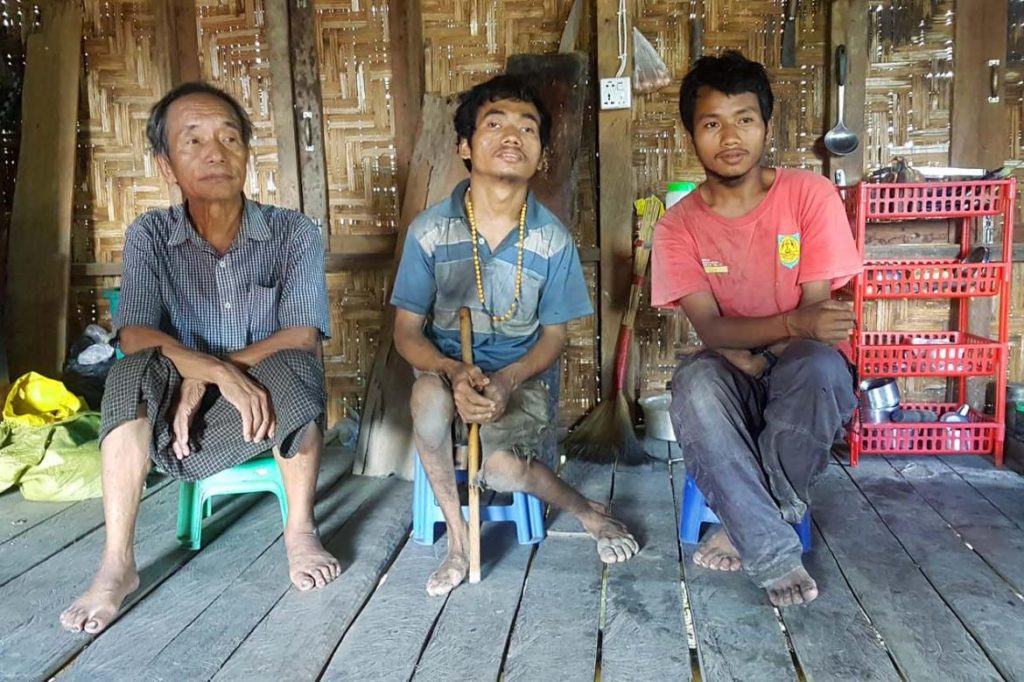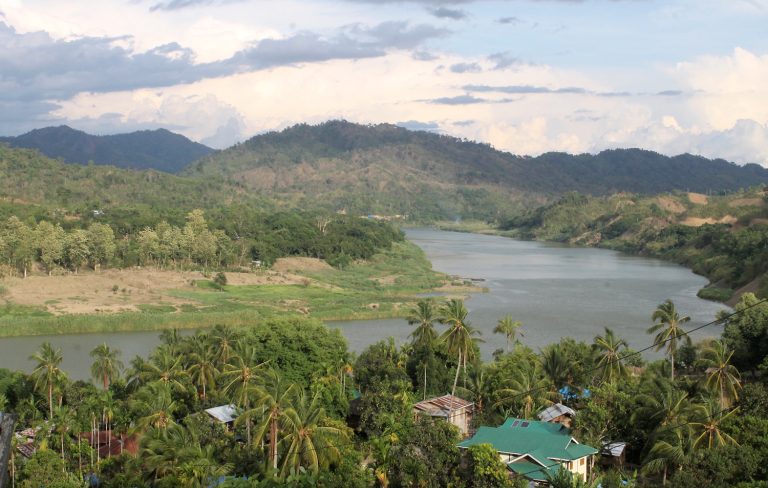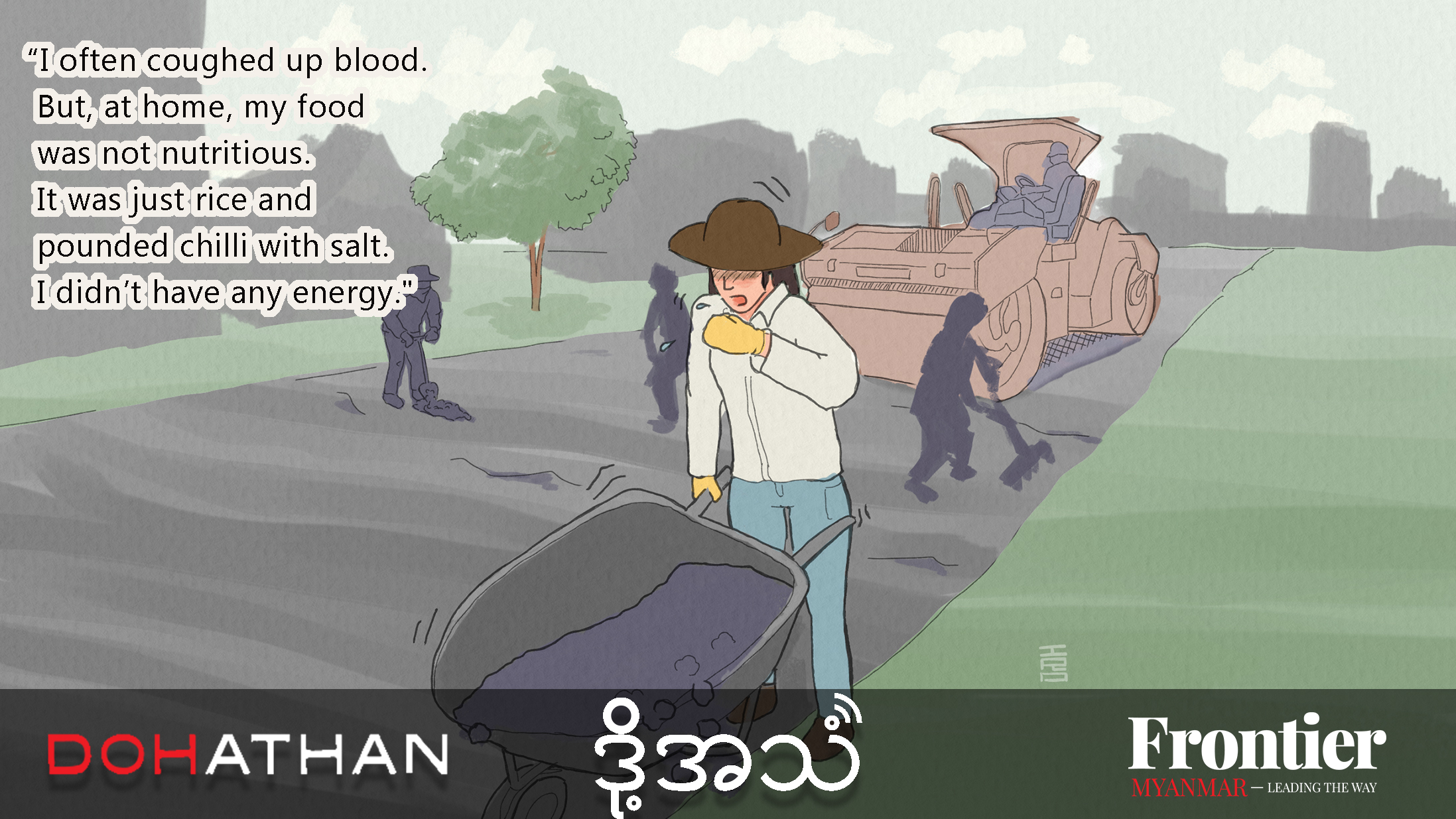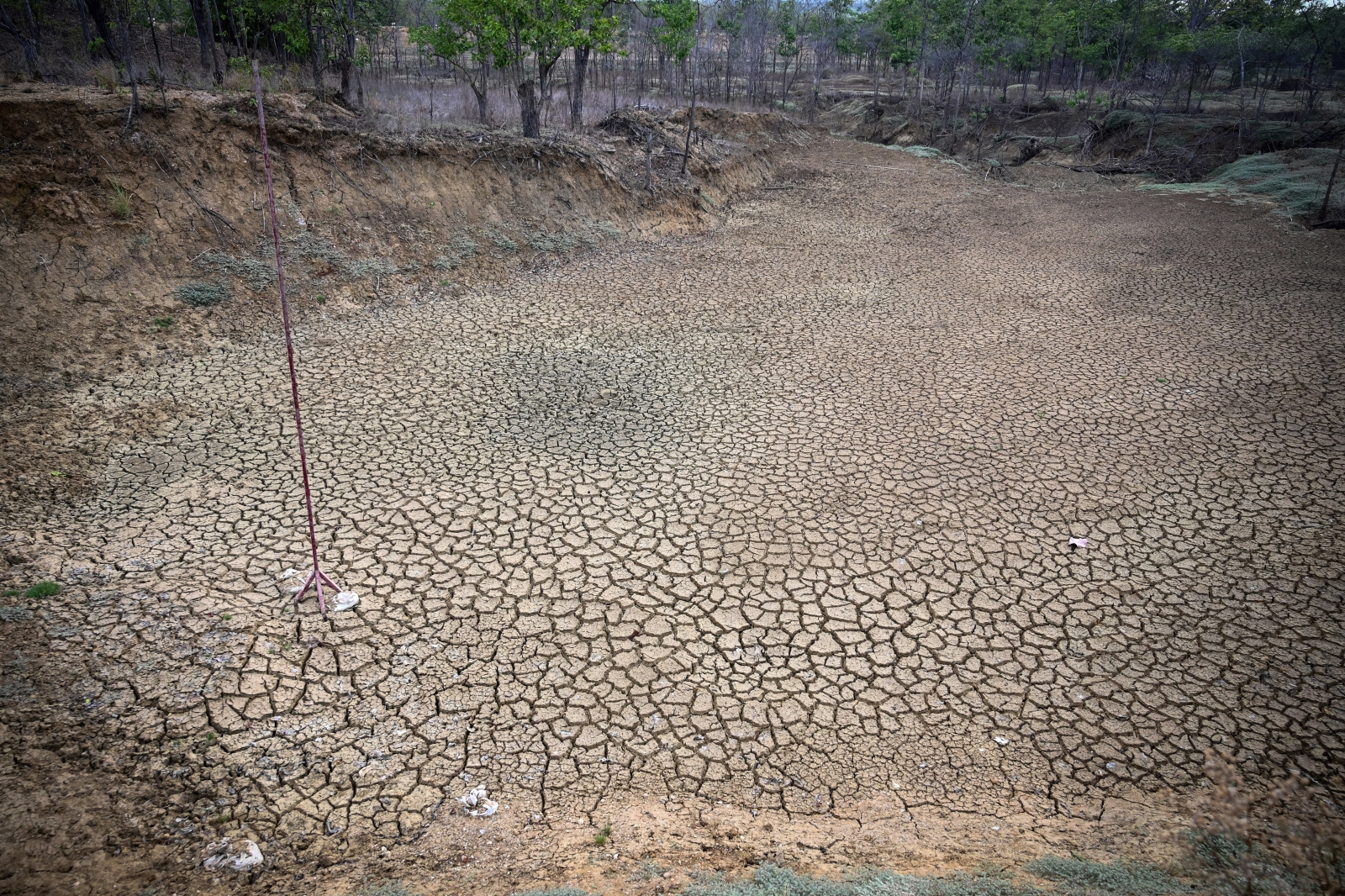People living with disabilities in poor, undeveloped Chin State have little support and few opportunities for education or employment.
By WIN ZAR NI AUNG and SALAI TAAN LIAN KHUP
ON APRIL 27, Mang Sian Piang celebrated the happiest day of his life. For the first time in his 21 years, he travelled in a car.
Mang Sian Piang was born without the use of his legs and had previously never left his remote home village in mountainous Chin State, the least developed of the nation’s 14 states and regions.
“When I went outside I saw many people and I wanted to be like them,” Mang Sian Piang told Frontier, recalling his travel adventure. “I wished I could move and walk like them.”
The first trip of Mang Sian Piang’s life was a 16-kilometre (10 mile) journey to Kalay in neighbouring Sagaing Region, where he attended a workshop hosted by the Disability Development Initiative, an NGO that promotes the rights of people with disabilities. He said he struggled to understand much of what was discussed at the event, but was encouraged by his experience of this “new world”.
Support more independent journalism like this. Sign up to be a Frontier member.
Mang Sian Piang lives in a simple bamboo home on a bumpy, muddy track in the Vungmual ward of Tedim Township, amid the steep hills of northern Chin. The neighbourhood where he lives was built to resettle people displaced by a nearby landslide in 2016.
When Frontier visited in August, Mang Sian Piang was moving around the house with the help of a bamboo stick. He was wearing a short-sleeved shirt and his trousers were held up by a piece of plastic tied around his waist.
The beads he wears every day around his neck signal his Christian faith. Chin is the only state or region where most people – about 85 percent – are Christian. Yet, because of his disability, Mang Sian Paing has never been to church. Unable to leave his village, he was also denied an education.
“I’ve never heard a sermon. I can’t read religious books because I never had the chance to go to school,” he said.
Mang Sian Piang spends most of his day cooking for his father and brother, with whom he lives, but said he often gets bored.
“At those times, I wish someone would talk to me. Sometimes Michael talks to me when he arrives home, but we don’t speak very often,” he said, referring to his younger brother, Michael Cin Sian Thang, 17, who is also disabled.
Michael Cin Sian Thang contracted cerebral palsy when he was young after a poorly administered injection. He is the only member of the family of three who can work and makes a living collecting empty cans for recycling around Kalay University.
Michael Cin Sian Thang had dreamed of acquiring an education when he was young, but his disability made it difficult for him to concentrate at school. He dropped out after Grade 6, but was able to resume his studies with support from DDI. He has since stopped attending classes.
“I couldn’t remember the lessons. At first I was happy at school, but now I don’t want to go there,” he said.
There are few education and employment opportunities for people living with disabilities in and around Chin, said Ko Joshua, associate director of DDI.
“Even if a disabled person gets a graduate degree it is difficult to get a government job,” said Joshua, who contracted polio as a child. “Especially [for those who want to be] teachers, it’s not possible.”
Chin has one of the highest percentages by population of disabled people in Myanmar. The 2014 census found that 2.3 million people, or 4.6 percent of the population, live with a disability in Myanmar. Of that figure, 35,669 are in Chin where they account for 7.4 percent of the population, the second highest proportion nationally after Ayeyarwady Region’s 7.6 percent.
“The situation for disabled people is very bad here,” Joshua told Frontier. “They don’t know their rights, they have no chance to go to school and people think they are useless.”
He said many disabled people are unaware of organisations that could help them. A taboo surrounding the issue means families are often reluctant to reveal that a member is living with a disability.
Organisations working to help the disabled have little impact because of a lack of funding, and there is no government support,” he said.
Chin State Minister for Social Affairs U Pau Lwin Min Thang acknowledged that government assistance for people with disabilities was “a weak point”. He said the government was providing nutritional support for mothers and children and hoped it could help prevent children being born with disabilities.
Pau Lwin Min Thang said he had proposed to the government that roads be upgraded to improve mobility for people with disabilities. He said they could also benefit from the Myanmar National Social Protection Strategic Plan, launched in December 2014.
Under the plan, the Union government promised to establish support centres and also provide a monthly allowance of K30,000 to the disabled.
Mang Sian Piang said he would welcome any government support but had yet to receive an allowance.
Mang Sian Piang wants to learn to sew and has asked DDI about training but the organisation currently lacks the funding to conduct such a course.
“We are looking for Chin donors who are living abroad to help him,” said Ma Ni Khun Sung, 35, who runs a day care centre for DDI.
Until more assistance can be provided, Mang Sian Piang’s father, Pa Thawn Lang Thang, 72, will continue to worry about his son.
“I can’t sleep at night thinking about this. I’m worried,” he told Frontier. “I can’t do anything for him and all I can afford is anxiety.”







